You can watch all of our previous Tomorrow's Home virtual talks here.
Watch our launch event for Tomorrow's Home!
Week 1: Connectivity - 22-28 November
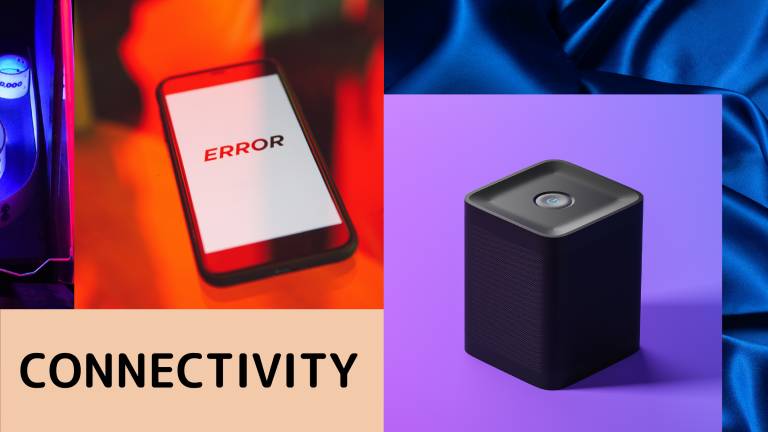
"Hey Siri, tell me about smart devices"
Smart devices - sometimes referred to as 'the internet of things' - are ubiquitous in our modern homes.
From speakers, to doorbells and fridges, our home objects are connected to the internet, communicating with each other, and sharing data. Creepy or convenient?
Hear from our experts as they explore the possibilities and pitfalls of smart devices.
'Smart devices' - webinar, Wednesday 24 November, 11 am – 1 pm
- Could nanoengineering make tomorrow's home more sustainable? Professor Manish K Tiwari
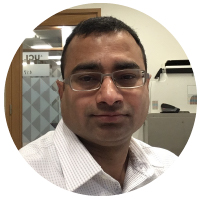
Nanoengineering – engineering at a teeny tiny scale – has a lot of benefits for sustainable healthcare technology. Manish will talk about how nanoengineering can create surfaces or paints that make it difficult for bacteria and viruses to survive. He'll also discuss self-cleaning surfaces which could reduce the need for environmentally-harmful detergents, and conserve water and energy use.
Manish is a Royal Society Wolfson Fellow and Professor of Nanoengineering in UCL. He leads a platform in UCL’s Wellcome/EPSRC Centre for Interventional and Surgical Science.
- Smart textiles - a convergence of fabric, technology and healthcare. Dr Angelo Karunaratne
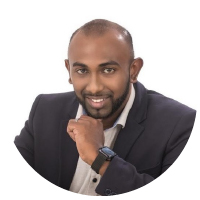
Angelo is Head of Product Development at MAS Health, a Sri Lankan-based company that develops 'next-to-skin' solutions that enhance people's quality of life. He'll talk about the work they do at MAS Health and how design, wearable technology, textiles and health can come together in harmony.
- Creating probiotic environments. Dr Richard Beckett
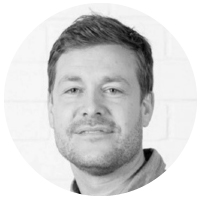
Architect Richard will discuss his work which flips the idea that germs in our homes are bad for us on its head. Richard's work acknowledges the important role that germs or microbes play in healthy bodies and healthy environments. His work includes encouraging beneficial bacteria to grow, and restoring environmental microbes which are missing from our cities.
Richard is an architect and Associate Professor of Bioaugmented Design at the Bartlett School of Architecture, UCL.
- Introducing ETHERA - a digital platform for monitoring health at home. Dr Ivana Drobnjak
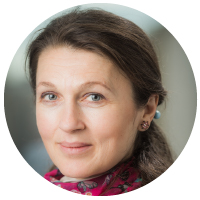
Ivana will talk about her work developing ETHERA, a real-time patient monitoring platform that bridges the gap between home life and in-patient care. ETHERA captures health information via wearable sensors and mobile apps and usings AI to analyse the data and alert healthcare professionals to any problems. It's been designed in collaboration with patients and clinicians to empower patients to take charge of their health!
Ivana is an Associate Professor in the UCL Department of Computer Science.
- Blurring the background - boundaries of the public and private in health and care at home. Dr Gemma Hughes
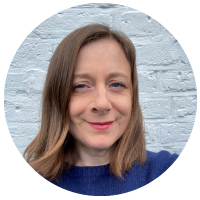
The title of this talk refers to the practice of blurring backgrounds on video calls, which is common when we participate remotely in health, education, work and other social activities. The talk draws on emerging findings from two qualitative research studies: the use of video consultations for healthcare during the pandemic and a study, Virtual Presence, of telepresence technologies in the home. You'll learn more about how private and public spheres of life appear to shift and change as people participate in these activities, and reflect on our assumptions about homes.
Gemma is an interdisciplinary health services researcher in the Nuffield Department of Primary Care Health Services at the University of Oxford.
- Can robots help us recover from injury more quickly? Professor Rui Loureiro
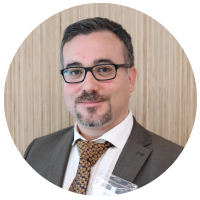
In recent years, scientists and doctors have been eagerly exploring the possibilities of using robots in surgery and rehabilitation. Rui will talk about new ways that robots and games are being used for clinical training, and how they can have a positive impact on mental and physical recovery.
Rui is Head of the UCL Institute of Orthopaedics and Musculoskeletal Science and also leads the Aspire Centre for Rehabilitation Engineering and Assistive Technology (CREATe) at UCL.
- Living with Long Covid - digitally enhancing NHS Long Covid community clinics. Dr Henry Goodfellow
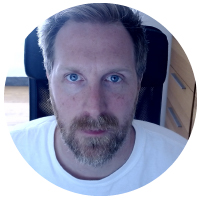
We have designed and embedded into over 20 NHS long covid clinics, a digital chronic disease management platform to connect long covid patients with their clinicians. The digital platform consists of two parts, a patient-facing mobile phone App and a clinician facing dashboard accessed through any web browser. This platform is then integrated into different long covid clinics to allow remote triage, assessment and monitoring of patients.
Henry is an NIHR Clinical Lecturer in Primary Care and Digital Health and also works 2 days a week as a GP. Learn more about the Living with Long Covid project.
'Smart connections' - webinar, Wednesday 24 November, 6 pm - 8 pm
- Too close to home? A discussion of creepiness in domestic technologies. Ava Scott.
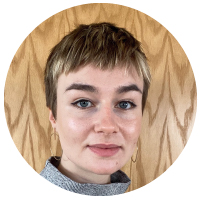
Creepiness is a product of ambiguity, evoking both revulsion and fascination and leaving us paralysed in a state of hyper-vigilance. The idealised image of the home is far from this: a comforting sanctuary, opaque to the prying eyes of others and distinctly private. Domestic technologies offer us brilliantly useful services, enhancing our wellbeing by supporting our memory, automating repetitive tasks, and monitoring the security status of our homes. In return, these technologies often gain privileged access to our behaviour, relationships, identities, and health status. Why does this make us uncomfortable, and what can we do about it?
Ava is a PhD candidate in cognitive neuroscience at UCL
- Smart but scary home? What smart devices mean for victims and survivors of domestic and sexual violence. Leonie Tanczer
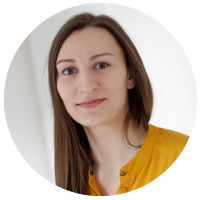
In recent years, there's been a rise in online harassment and sexual abuse carried out through digital devices. 'Tech abuse' can range from cyberstalking through to behavioural control. Internet-enabled devices like smart meters, locks and cameras considerably increase the risk of abuse. Leonie will talk about her research project, 'Gender and the IoT (Internet of Things)' – looking at how smart technologies impact domestic and sexual violence, and how we can combat this abuse.
Leonie Tanczer is a Lecturer in International Security and Emerging Technologies at UCL.
- Living inside a smartphone. Professor Danny Miller
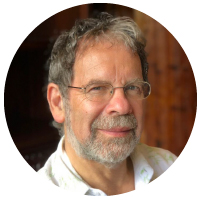
A smartphone isn't really a phone, nor is it smart, states Danny Miller. Instead, it's another place where we live - what Danny refers to as a 'transportal home'. This has profound implications for our well-being and the way we live our lives, but of course this varies across different populations.
Danny is a Professor of Anthropology at UCL. He is a co-author of The Global Smartphone, which closely relates to this talk. You can download The Global Smartphone for free from the UCL Press website.
- Connecting what matters most - data lessons from the pandemic. Dr Cian O'Donovan
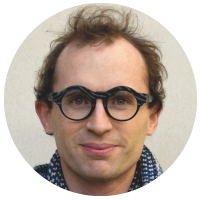
"Thank you NHS". Signs hand-painted on windows, cars and giant murals during the early months of the pandemic showed just how much our National Health Service means to us all. Yet a year later, millions of people deliberately opted-out of sharing their medical information with public health scientists. This talk will discuss the great pandemic data disconnect and how scientists and engineers might re-engage with everyone to build tomorrow's homes that connect what matters most.
Cian O'Donovan is a Senior Research Fellow at UCL's Department of Science and Technology Studies
For brand new research on public trust and health data, see here.
For our work on data-use during the pandemic see here.
Twitter: @cian- What would the future of home healthcare look like? Dr Mine Orlu
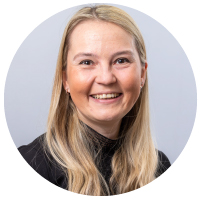
We often come across a new way to personalise gifts, decoration, furniture as we prefer but would it be also possible to tailor the medicine to the individual? Would it be possible to personalise devices to monitor our health at home? Emerging technologies, ranging from additive manufacturing to AI, offer promise to manage health considering specific healthcare-related needs.
Mine is an Associate Professor in the UCL School of Pharmacy.
- Biohackers, the future is calling. Mariam Elgabry
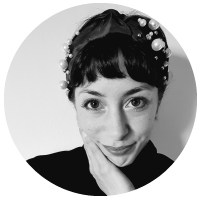
Tomorrow's home has a genome. With the re-engineering science of synthetic biology, our medication is "living", our meat is manmade, and our offspring designed. But what does that mean for the future of crime?
Mariam Elgabry is a doctoral and award-winning researcher at the University College London between the Dawes Centre for Future Crime and the Advanced Centre for Biochemical Engineering. You can visit her online at www.mariamelgabry.com or on Twitter (@MariamElgabry11)
Week 2: Community - 29 November - 5 December
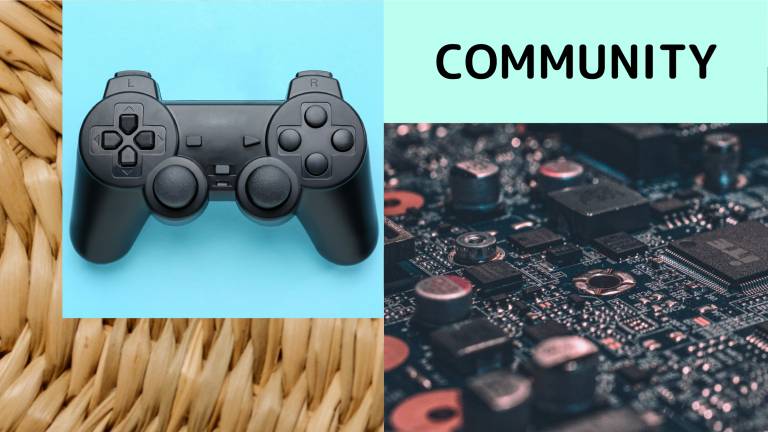
"Everybody needs good neighbours"
Or so the classic theme song goes. But could good neighbours (and neighbourhoods) be good for our health?
And is it fair that our healthcare and wellbeing outcomes are determined by a so-called 'postcode lottery?'
Our expert speakers will discuss how housing, communities and social environments impact our health, and ways we can build better futures.
'The role of communities and neighbourhoods on our health' - webinar, Friday 3 December, 11 am - 1.30 pm
- Cultivating neighbourhoods that care. Ian Spero
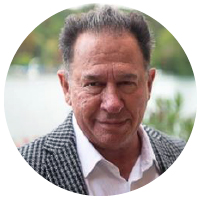
With mounting evidence indicating that multigenerational interaction is beneficial for people of all ages, AAA has joined forces with ISO to convene a gold standard for smart multigenerational neighbourhoods. Rather than allowing segregation and risk potential ghettoisation, this presentation marks the launch of a new report which makes the case for integration and harmonisation of our neighbourhoods by foreseeing, adapting and accommodating to our needs as we journey through life. In pooling research, expertise and insights, stakeholders have the opportunity to revolutionise the design of our neighbourhoods of the future, at both the micro and macro levels.
Ian is an Honorary Professor at the UCL Bartlett School for Sustainable Construction. He's also the founder of the Agile Ageing Alliance (AAA).
- Making homes healthy places to age well. Sue Adams
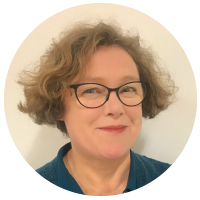
This session will highlight some of the current ‘Integration in Action’ innovations that are helping to make homes healthy, safe, and enabling greater independence in later life. It will highlight the opportunities and challenges that a vision of shifting healthcare from hospital to home can bring.
Sue is CEO of Care & Repair England, a national housing and ageing charity. She was awarded an OBE for services to older people's housing in 2010.
- Tomorrow's home and care readiness. Jeremy Porteous
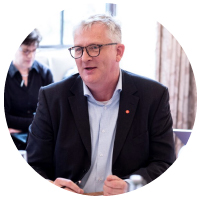
The talk will set out the HAPPI design principles for an ageing population and share the findings and examples of practice to make tomorrow’s homes ‘care ready’, as captured in the recent Technology of our Ageing Population: Panel for Innovation Inquiry report.
Jeremy is Chief Executive of the Housing Learning and Improvement Network (LIN), which brings together housing, health and social care professionals to improve housing for an ageing population.
- The future of domestic space. Professor Alan Penn
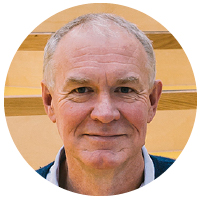
Society is changing rapidly in the face of globalisation and technological change. The pandemic has if anything accelerated these changes. Although many have talked of the changes taking place in the world of work, in retail and on our high streets, less has been said about changes within people’s homes. Here I reflect on what we know about domestic space and its relationship to family and culture, before suggesting what might happen next.
Alan Penn is Professor of Architectural and Urban Computing at the Bartlett, UCL, and Chief Scientific Adviser at the Department for Levelling Up, Housing and Communities.
- How do we help the built environment industry integrate healthy ageing into homes and places. Geoffrey Stevens & Natalie Record.
Geoffrey Stevens and Natalie Record. from Catapult will present a halfway through review of the Connected Places Catapults Homes for Healthy Ageing Programme. HfHA is a 3-year programme to contribute towards the UK Government’s goal of supporting older people to live at home independently for 5+ years longer. The programme is establishing 5 testbeds across the UK to help build the communities and create the conditions needed to develop and test innovative solutions to healthy ageing challenges.
Geoffrey is Urban Technology Team Lead at Connected Places Catapult. He works to deploy innovative solutions that demonstrate how innovative technologies can solve complex challenges.
Natalie is Housing Innovation Lead at Connected Places Catapult. She is an Urban Planner by background.
- First do no harm, then try to design with older people in mind. Dr Evangelia Chrysikou
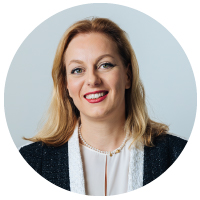
The presentation discusses through a handful of case studies the limitation of the current architectural paradigm to be in a constant harmony with human physiology and perception. This limitation could be met in intimate, private, healthcare and public spaces. As illustrated through these case studies it could bring vulnerable and old people in situations that compromise their health and wellbeing by “simple” architectural mistakes. In a few cases those mistakes could become life-threatening. Yet, we don’t have adequate processes to prevent those. This “safe by default” perception of architectural practice is juxtaposed to the medical paradigm and the Hippocratic Oath.
Evangelia Chrysikou is an Associate Professor at The Bartlett School of Sustainable Construction UCL, Director of the MSc Healthcare Facilities and a medical architect. She specialises in healthcare built environments.
- Chair: David Sinclair, Director of International Longevity Centre (ILC)
David has worked in policy and research on ageing and demographic change for 20 years. He holds honorary positions at UCL and Newcastle University. David has a particular interest in older consumers, active ageing, financial services, adult vaccination, and the role of technology in an ageing society. He has a strong knowledge of UK and global ageing society issues, from healthcare to pensions and from housing to transport. He has published reports on a range of topics from transport to technology and health to consumption.
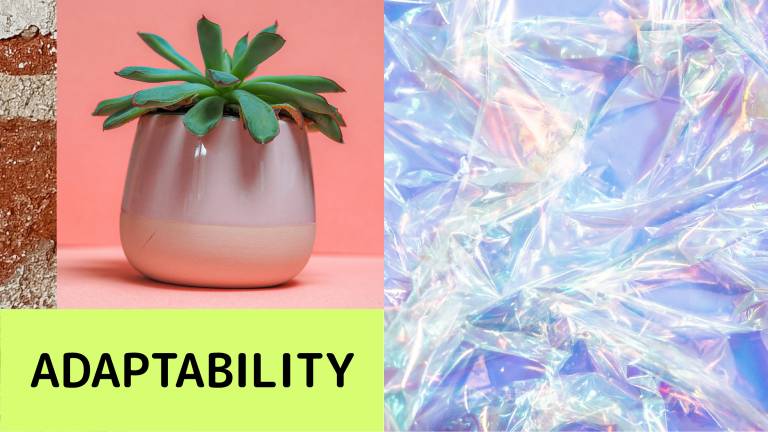
Hearts, Minds and Digital Technology @Home - online panel discussion, Tuesday 14 December, 11 am - 12.30 pm
The global pandemic forced a sometimes unwelcome and uneasy introduction of more digital technologies in the home, particularly for elderly users, raising questions about privacy and security. Sometimes even passive and at first glance, mundane-looking objects like chairs and heat sensors can have complex digital footprints.
Digital technology is also changing the way health care is delivered and accessed, how wellbeing is understood, monitored and achieved, and how social housing builds and manages homes for elderly residents, and engages with them.
The powerful and hidden ways digital technology changes our lives and homes can make it an invaluable facilitator of healthy aging, telecare and wellbeing in the home, and help us reduce our environmental impact. Unchecked, it could become a deeply entrenched and impenetrable barrier to wellbeing and telecare, forcing people to bypass, switch off and go without, entrenching undesirable practices and wasting environmental resources.
The panel will discussing how digital technologies can win the hearts and minds of elderly people in social housing in their homes, and what are the barriers and opportunities for the behavioural change we so desperately need as a society?
Panellists:
- Chair: Dr Ralitsa Hiteva, Senior Research Fellow at the Science Policy Research Unit at the University of Sussex
- Mark Stratford, Commercial Director for Appello
- Tom Leon-Grimes, Service Development Manager for Orbit
- Dr Kate Simpson, Energy researcher, Imperial College London
- Ben Tongue- NHS Digital
- Dr Robin Darton, Senior Research Fellow, Personal Social Services Research Unit, University of Kent
- Dr Ralitsa Hiteva, Senior Research Fellow at the Science Policy Research Unit at the University of Sussex
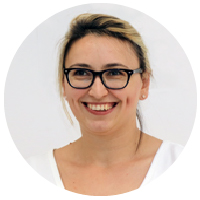
Ralitsa is a Principal Investigator of the 'Environmental impacts of digital services for health and wellbeing in the home' project which investigates the environmental impact of digital technologies and services for health and wellbeing in the home, through an innovative partnership with Orbit (housing association), Appello (a digital system developer), NHS Digital (health service provider) and UCL’s Tomorrow’s Home 2050 project.
- Tom Leon-Grimes, Service Development Manager for Orbit

Tom leads on the property and customer assistive technology offer across Orbit’s Independent Living, Supported Living and general housing, with a special interest in making assistive technology easier to access and understand for customers in order to improve health prospects. Part of Orbit’s Environmental Sustainability Steering Group, Tom is keen to understand and mitigate the environmental impact of services.
- Dr Kate Simpson, Researcher on the ‘Environmental impacts of digital services for health and wellbeing in the home’ project
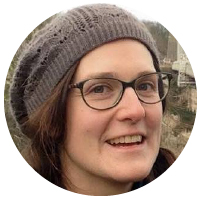
Kate will discuss insights from an immersive future workshop, via Tomorrow's Home, at The Museum of the Home. This aims to open up creative re-imaginings of meaningful encounters with digital services in the home, for householders with particular needs.
- Dr Robin Darton, Senior Research Fellow, University of Kent
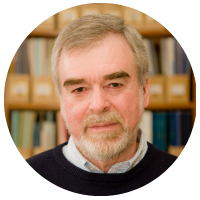
Dr Robin Darton is a Senior Research Fellow at the Personal Social Services Research Unit (PSSRU) at the University of Kent. He was part of the PSSRU team commissioned by the Department of Health to evaluate extra care housing schemes supported by the Extra Care Housing Fund, and was a member of the EPSRC-funded Sheffield/PSSRU team that developed the EVOLVE tool for the evaluation and assessment of extra care housing design. From 2012, he worked with colleagues from the Universities of Bristol and Worcester, Housing and Care 21 and the Housing Learning and Improvement Network on the ASSET and ECHO projects to explore the provision and delivery of adult social care in housing with care schemes.
- Ben Tongue, Sustainability Lead, NHS Digital
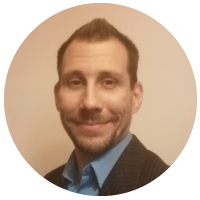
Ben is a chartered environmentalist and lead subject matter expert working at the interface of digital, health and sustainability. Placing equal focus on the mitigation and resilience agendas he is spearheading work to create tooling and design criteria for the design and delivery of enable low impact climate resilient digital health services.
Watch 'Hearts, Minds and Digital Technology @Home'
Adaptability - a webinar, Wednesday 15 December, 11 am - 1.30 pm
All living species have evolved to adapt to their habitat. But what if our habitats could adapt to suit us?
Imagine a home that anticipates your every need and whim. From playing the optimal song to get you out of bed in the morning, to dimming the lights when it senses a romantic moment.
And speaking of adaption, how do we adapt to our changing bodies and identities as we grow older? What role do our physical capabilities and even the sound of our voices play in how we see ourselves?
- Hearing technologies of the future. Professor Nick Lesica
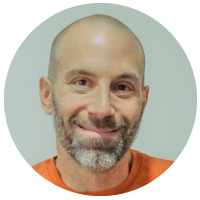
Hearing loss is one of the leading causes of disability in older persons. For most forms of hearing loss, treatment is limited to assistive listening devices such as hearing aids, but the benefit of these devices is limited and uptake is poor. Fortunately, recent advances in artificial intelligence are driving the development of new technologies that could be transformative for people with hearing loss, not by correcting hearing loss per se, but by creating augmented realities than can alleviate the associated disability.
Nick is a Professor of Neuroengineering and a Wellcome Trust Senior Research Fellow at the Ear Institute at University College London. His research group is focused on understanding the neural mechanisms that underlie the processing of speech and how they are impacted by hearing loss.
- The Adaptable Lit Environment. Professor Peter Raynham
Our need for light often changes with age, in particular sight loss and neurological changes may make it harder for older people to see and perceive their environments. It is possible to change the lighting and the interior design of homes to permit independent living for a large number of people who would otherwise need care. The presentation will explore some of the strategies that can be employed, and in particular, how this can be done without making the home look institutional.
Peter is Professor of the Lit Environment at the Bartlett School of Environment, Energy and Resources. Peter is interested in the whole area of lighting, ranging from visual science through lamp physics, photometry through to the appearance of lit spaces.
- The EnTimeMent Project: Affective technology for chronic pain physical rehabilitation in the home. Prof Nadia Bianchi-Berthouze, Dr Nicolas Gold, Prof Amanda Williams
With the emergence of full-body sensing technology, smart homes and advances in artificial intelligence come new opportunities to support people’s affective experiences and needs during self-directed ubiquitous physical rehabilitation. In our talk, we will present our work within the H2020 EnTimeMent FET project discussing how such technology could lead to more meaningful and effective chronic pain self-management by integrating physical rehabilitation in everyday activities within people’s life and home.
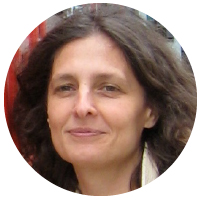
Nadia Bianchi-Berthouze is a Full Professor of Affective Computing and Interaction at the University College London (UCL). Her research focuses on designing technology that can sense the affective state of its users and use that information to tailor the interaction process. She investigates such questions across real-life applications eg., physical rehabilitation, circular textile economy, education and wellbeing.
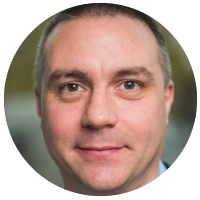
Nicolas Gold is Associate Professor of Computer Science at University College London. His research spans software engineering, ethics, and music computing, the latter currently focused on sonification and musification in healthcare, and music and making for education.

Amanda Williams is a Full Professor of clinical health psychology at University College London, working on pain. Part of her research involves contributing to the development of technology to provide the support usually offered by psychologists and physiotherapists ta make it available in real time to people with pain, wherever they are.
- Sound Voice: an inter-transdisciplinary collaboration with plural creativity and co-authorship to impact research in health and wellbeing. Thomas Moors
Sound Voice is a visionary exploration of the human voice and possibilities of collaboration. It brings together those who have experienced voice loss (e.g. affected by motor neuron disease, Parkinson's or throat cancer) alongside artists, biomedical researchers, healthcare professionals, academics and technology entrepreneurs. This inter-transdisciplinary project has revealed deep connections for all those taking part, expanding our collective knowledge and understanding of the voice. It is a demonstration how creativity is a catalyst in our thinking and helps to deliver a message to different audiences with an invitation to reflect.
Thomas Moors is a doctor and Medical Director of Sound Voice.
- Art-abilitation: solo and group interaction with artefacts. Professor Rui Loureiro.

Simple explorations of carefully designed interactive experiences, available in public spaces, could have a positive effect on rehabilitation. Our goal is to explore the social nature of art and culture to promote creative expression and playful activity beyond the clinic or home. This talk will explore the challenges with developing robotic entities that are socially meaningful and designing interactions that can effectively capture creative expression or playful activity beyond the clinic or home while enhancing sensory/ emotional experiences, symbolic/ emotional expression, cognitive development and social connectedness.
Prof Rui Loureiro is a Full Professor at UCL and Head of the UCL Institute of Orthopaedics and Musculoskeletal Science and of Aspire’s Centre for Rehabilitation Engineering and Assistive Technology (CREATe) at UCL
Week 4: Sustainability
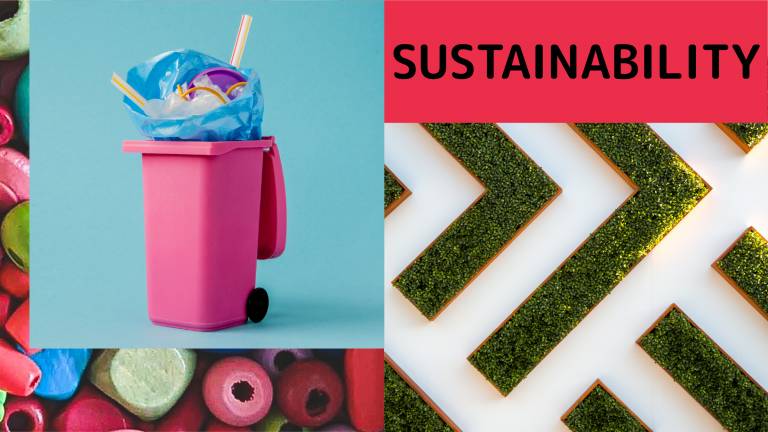
'Plant-based homes: Cork House' - webinar, Thursday 16 December, 1 pm - 2 pm
Building future hopes out of sustainably farmed plant-based materials can give delightful homes with healthy indoor environments that can contribute to a more sustainable environment in several ways. For example, plants absorb atmospheric carbon when they grow and so using plant-based materials can contribute to reducing atmospheric carbon by storing it in building components.
Oliver Wilton and Matthew Barnett Howland from UCL BERN (Building Envelopes Research Network) explain these issues and talk about their recent work with plant-based materials, including Cork House, the world's first structural cork home, which has been recognised as a sustainability exemplar.
Developed by the UCL Bartlett School of Architecture, Cork House is a structure of great ingenuity. Sited within the area of a Grade II Listed mill house dating back to the early nineteenth century, the Cork House beautifully reflects and respects the natural surroundings in form and construction.
All the components can be reused or recycled, and the expanded cork blocks have been made using by-products and waste from cork forestry and the cork stopper industry.
Meet the team behind this incredible structure, learn more about its construction, and the future of nature-inspired architecture.
- More about Cork House
- Meet the Cork House team
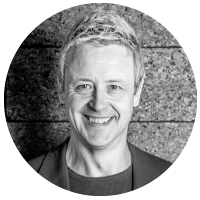
Matthew Barnett Howland studied architecture at Cambridge University and the Bartlett UCL and has worked in architectural practice at Buschow Henley in London and Jestico & Whiles in Prague. Matthew is currently a Lecturer at the Bartlett School of Architecture UCL
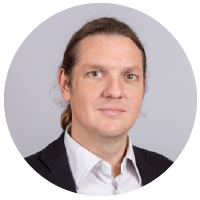
Oliver Wilton is an Associate Professor of Environmental Design at the Bartlett School of Architecture UCL. Oliver’s research addresses architecture and environmental design from a building component to a climate scale.
Watch 'Plant-based homes: Cork House'
Responsibility: what do we owe our future selves? - a webinar, Friday 7 January, 2 pm - 4 pm
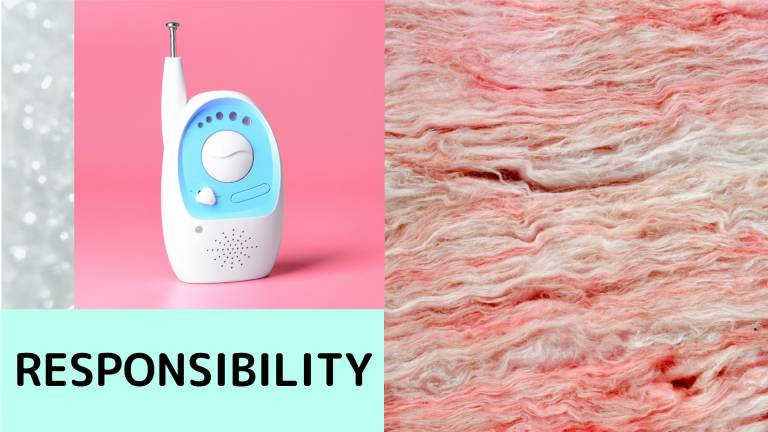
- Making invisible homes visible: a short film and talk championing temporary accommodations and homelessness. Professor Monica Lakhanpaul and Dr Kartik Sharma
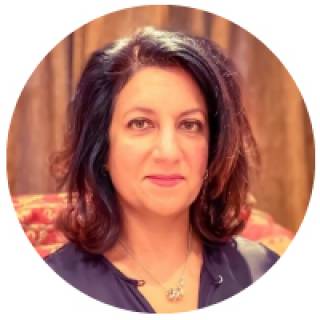
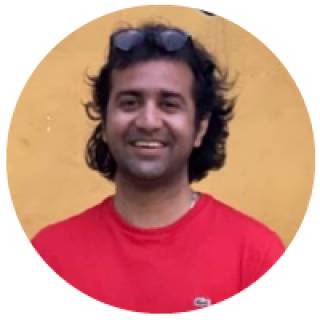
The talk from Professor Monica Lakhanpaul opens with an animation film conceptualised by Dr Kartik Sharma, using real-life inferences from Temporary Accommodations/ homelessness articulating the lived experiences, barriers and issues faced by families. The creative and emotional dynamics of the film have real like inferences from the Champions Project and Tomorrow’s Home. The film has been co-created with the research team as well as their community engagement panel . With the film as a starting point, Professor Lakhanpaul will open a discussion with colleagues and encourage a dialogue about how we can improve the lives of families living in challenging environments by harnessing and tailoring technology solutions.
Professor Monica Lakhanpaul is an academic researcher, broadcaster and practising paediatric consultant. She is currently a Professor of Integrated Community Child Health at UCL Great Ormond Street Institute of Child Health, UCL Pro-Vice-Provost for South Asia and member of Faculty of Public Health by distinction.
Dr Kartik Sharma is a filmmaker and founder of Public Arts Health & Us, an interdisciplinary organisation based in London and New Delhi. He currently serves as the Creative Advisor for projects with UCL, DemontFort University (DMU), Royal Holloway University and Oxford University.
- Responsible Innovation: Let's talk about feelings. Dr Stephen Hughes
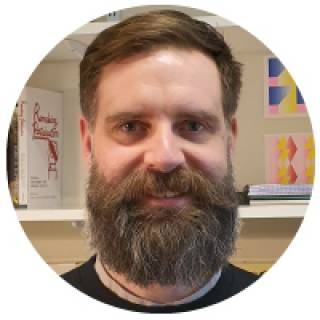
Innovation raises some uncomfortable feelings. Anxiety about who owns, controls, and governs powerful technologies like social media platforms or vaccines, rage at how the benefits and risks of science are unequally distributed, and grief, loss, or denial at our inability to develop solutions to some of the world’s biggest problems. To innovate responsibly, we need to have some difficult conversations about some uncomfortable topics. Responsible innovation encourages us to engage with the difficult, and sometimes painful, feelings that emerge when using science and technology to shape the world.
Stephen Hughes is a lecturer in science and technology studies at UCL. His research examines difficult and uncomfortable relationships between science and society in contexts such as conspiracy theories, injustice, controversies, and hype. Stephen’s approach focuses on the cultural and psychosocial dimensions of affect and emotion.
- Housing for a diverse range of disabled people. Dr Erin Pritchard
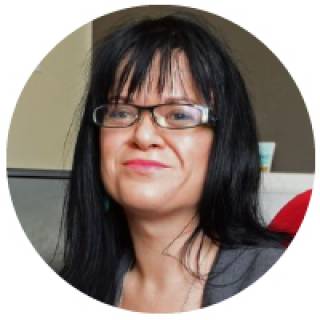
Housing for disabled people is limited, inadequate and unaffordable. What is available is often adapted for stereotypical constructions of disability which ignore the needs of over 90% disabled people. Added to this, according to Part M of the Building and Regulations Act Part 2, housing only has to be visitable, as opposed to livable, for disabled people. This presentation draws on my own experiences of looking for and moving into a new home as a person with dwarfism. Whilst dwarfism can be considered a disability under various laws related to disability, such as the Equality Act 2010, it is often contested or ignored as a disability in wider society. As a result, most housing does not accommodate their needs and furthermore, adaptations provided for disabled people are often inadequate. Drawing on universal design, in this presentation I offer recommendations to make housing more accessible for a diverse range of disabled people.
Erin Pritchard, PhD, is a lecturer in Disability Studies and core member of the Centre for Cultural Disability Studies. Her recent book, Dwarfism, Spatiality and Disabling Experiences, published by Routledge engages with theories within Human Geography and Disability Studies to unpack the socio-spatial experiences of people with dwarfism in public spaces.
- Ethnicity, health and ageing. Suresh Rambaran
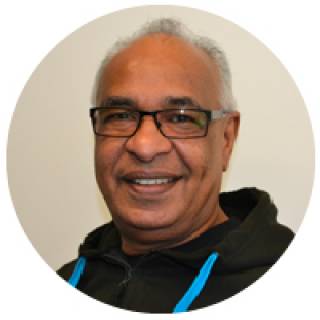
Suresh is a Cancer Information Specialist Nurse with Prostate Cancer UK. He is a founding member for Cancer Equality a national organisation advocating the improvement of cancer services for ethnic minorities. He is also a Trustee for Can Survive UK a BAME cancer support group based in Manchester, and a founding member and trustee for the BAME Cancer Support Group ‘Helping Hand’. In 2013 Suresh was presented with a Queen’s Diamond Jubilee Award for his work with the NHS and the voluntary sector.
- Addressing risk factors for loneliness in older people. Professor Tara Keck
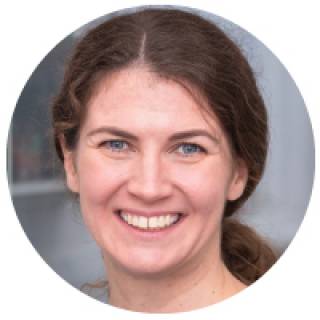
Loneliness is a common issue for older people and is a major risk factor for ageing related diseases, including dementia, cardiovascular disease and stroke, but to date, there have been few interventions tested to address this issue. My talk will discuss common risk factors for loneliness, based on studies done in the UK, Europe and Central Asia, and ideas for using technologies to help address these factors for older people.
Tara Keck is a Professor of Neuroscience and Wellcome Trust Senior Research Fellow in the Department of Neuroscience, Physiology and Pharmacology at University College London. Her work focuses on neuroplasticity - how the brain changes in response to the environment - and factors that lead to changes in neuroplasticity during healthy ageing and in ageing related diseases.
- The Future of Space, Reality and Humans in Tomorrow’s Home. Mansoor Hanif
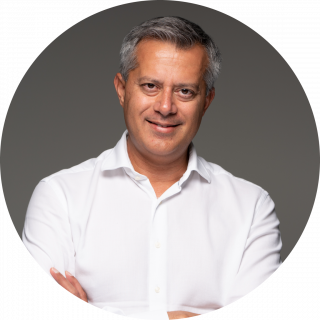
If the Covid pandemic has taught us one thing, it is that today’s homes are not equipped for new, adaptive ways of living and working in one space - there has never been a more pressing need for change.
In this session, we will share thoughts about how homes in NEOM will expand our concept of the home, how they will be designed and built to be flexible, adaptable and resilient - giving us more space and time to be fully human.
Tomorrow's home in the Cognitive City will be a perceptual, responsive and transparent environment where our digital and physical selves merge. We will experience this through personalized Data “Halos” or “Auras” - perceived and shared only with consent. These consensual, caring environments will offer access to services and resources (such as holistic clinical networks) previously impossible to obtain on-demand - often at great cost. Neom’s homes are ‘humanistic by design’, offering equitable access to well being for all. NEOM’s urban design maximizes livability, sustainability, and well-being – the core values of a post-covid society. To achieve this sustainably we need to adopt a transparent and efficient model for sharing resources - building a truly consent-based community.
NEOM is the place for doers who dream big - and who are designing the homes for tomorrow.
Mansoor Hanif is the Executive Director of Emerging Technologies at NEOM Tech & Digital Co., the world’s leading cognitive technology company, where he oversees initiatives on emerging technologies such as mixed reality, space, satellites, advanced robotics and human-machine interfaces.
- PixselChat - The next generation of multiuser video communication platforms with embedded live AI translations in over 100 Languages. Dr Sepi Chakaveh

As societies become more culturally and linguistically diverse the need for communication becomes more and more important.
Moreover, the pandemic has forced organisations to adopt virtual working on an unprecedented scale and it is clear that virtual working will continue in popularity post pandemic.
During the past 18 months, organisations and individuals have made extensive use of platforms such as Teams and Zoom. None of the established platforms offer seamless, automatic real time conversational translation.
Hitherto all communication platforms only allow one language per live sessions. Pixsellar has already developed a next generation of video conferencing platform with integrated real time translation capability. This platform is called PixselChat and allows users to converse seamlessly using video, audio and text in over 100 different languages.
PixselChat users select a language in which the user wants to communicate. Communications in the selected language are translated in real time (depending on the speed of the network connection) into the language chosen by the other user(s). Each user will send and receive communications in the user's selected language.
In this talk a brief introduction is given to PixselChat and a short demo on PixselChat in operation.
Dr Sepideh (Sepi) Chakaveh is the CEO/Founder of Pixsellar technology an Embedded AI in Video Analytics & Streaming start-up company as well as a University of Oxford Lecturer, teaching Data Science, AI & Software Engineering. Sepi is the winner of Everywoman Innovator Award 2020, and Technology Gamechanger 2021.
- The future of wearable technology. Muchaneta Kapfunde
The future is currently a construction site. Rethinking and reimagining a technology-infused 2050 is like entering uncharted lands for those unfamiliar with the massive potential of new technology when it comes to transforming industries and building environments.
- BT: Care beyond the hospital. Professor Sultan Mahmud and Shane Allum.
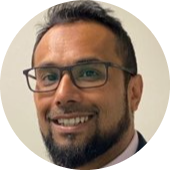
Increasingly, technology is being embraced by the NHS to help meet growing challenges across the service. Long term trends, such as an ageing population are now set against backlogs caused by the pandemic and compounded by significant workforce vacancies. In this session, you’ll learn more about the solutions we are developing in partnership with the NHS that will help transform the future of healthcare. Combining the best connectivity with innovative tech and clinical insight, to bring care out into the community; bridging the gap between hospital and home to relieve pressure on frontline services, improve patient care and provide better support to our ageing population.
Sultan is the newly appointed Director of Healthcare for BT’s Enterprise unit. He is an experienced executive with a passion for digital innovation and has had a distinguished career in the NHS spanning two decades.
Shane is a Research & Innovation Specialist at BT Adastral Park.
Request a copy of this recording by emailing us at healthcare-eng@ucl.ac.uk
Home Truths: Science, Art and Ethics - a Museum of the Home webinar
Hosted by the Museum of the Home, Hoxton. An online panel discussion exploring whether technological and digital innovation can improve issues of access and inequalities – as part of our public programme for Tomorrow's Home: an immersive exhibition showcasing what a home in 2050 could look like, and how it could aid the world and local communities. Chaired by Sarah Douglas – Founder and Director of The Liminal Space.
MediaCentral Widget Placeholderhttps://mediacentral.ucl.ac.uk/Player/93gabi1G
Technology Infrastructure for Tomorrow's Home - a webinar, Thursday 13 January, 2.30 pm - 4.30 pm
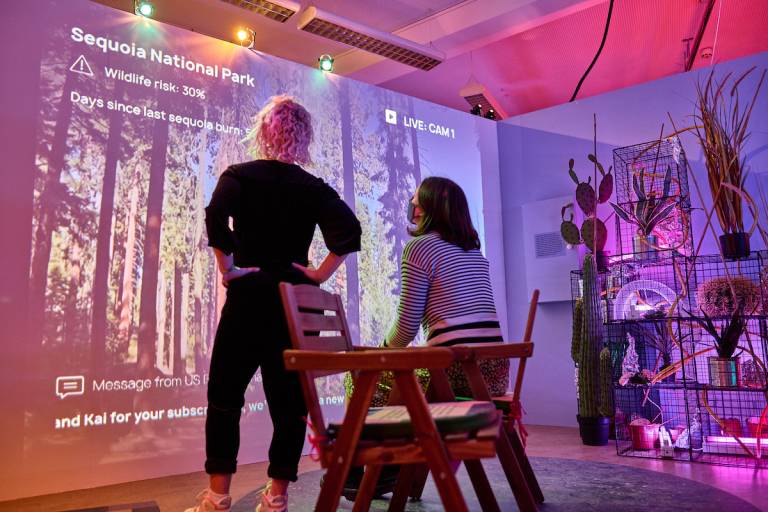
Meet the movers and shakers who are building the infrastructure for tech-heavy homes
From smart clothing to augmented reality TV sets, the home of the future will support our health and wellbeing in innovative new ways.
Hear from speakers who are working at the exciting forefront of home technology.
 Close
Close

